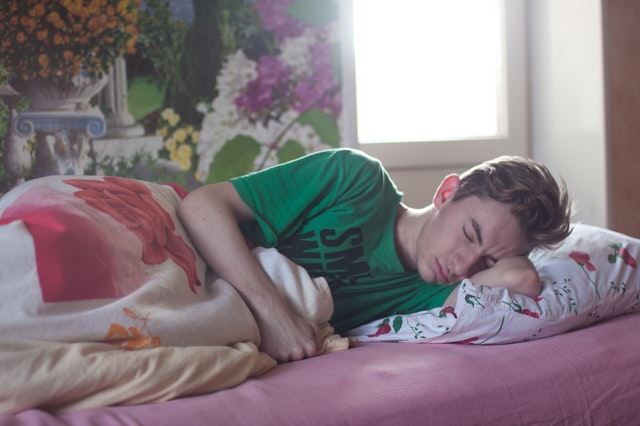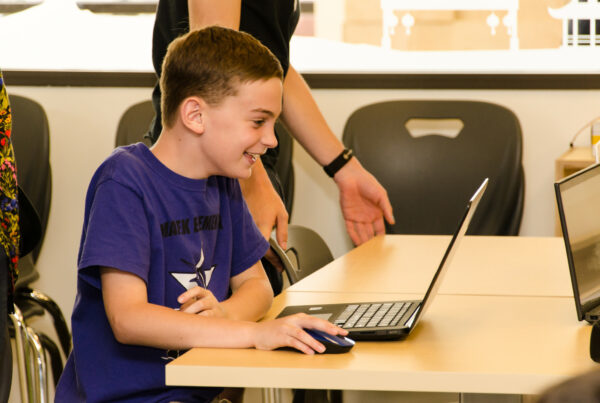Dr Nihara Krause, Consultant Clinical Psychologist, CEO and Founder of the award winning charity Stem4 has some great sleeping tips for teenagers in a new routine.
The current Coronavirus pandemic has brought about unprecedented change to young people’s lives. Not only is there anxiety over the virus and its impact, but also an anxiety about missing out on friendships, education, and future direction. In addition, physical factors such as lack of activity, differences in eating, changes to sleep routine with late nights and late wakening can all further contribute to disrupted sleep. Some changes to notice might include an increase in nightmares and bad dreams, feeling fearful of going to sleep in case bad things happen then to catch you out, wanting to spend more time with people who make you feel safe, or overthinking everything so that you end up feeling really tense.

Sleep is essential to our physical and mental well-being. It is also a behaviour that’s easily affected when our emotional or mental health is negatively impacted. There are many reasons why teenagers develop sleep issues, including over stimulation, lack of routine, hormonal shifts that disrupt sleep cycles and negative sleep associations. However, whatever age you are, being anxious will impact on sleep. Anxiety, worrying and overthinking can cause trouble dropping off to sleep, disrupted or poor- quality sleep, and shorter amounts of sleep.
Here are some tips from Dr Krause to help with anxiety and sleep
- Try and identify exactly what you are anxious about when you are awake. See if you can talk to someone you trust about it. If the anxiety is about Coronavirus, ask a parents or friend to get scientific and accurate information about it – there’s a lot of information, especially on social media, that isn’t always accurate. Remember that it’s only the negative things that get reported. There are many reassuring and good pieces of information that are not considered as newsworthy as the scary bits.
- Try and do any stressful activities early in the day and stay away from heated social media or alarming news programmes after 4 p.m.
- Take time to wind down. Do exercise earlier in the day (it helps) and then do relaxing things from around 5 p.m. Use your bed to sleep in only.
- Try to spend your day elsewhere. Keep a notebook and pen by your bed. Write down all the things you have to do in your notebook. If you find yourself thinking of more things you have to do as you try to drop off – write them in the book so you can keep this aside.
- If you find yourself worrying, write down any worries that pop into your head in the notebook.
- Follow a bedtime routine for at least 14 days. For example, dinner, TV, shower/ bath, read and then sleep.
- If you can’t sleep after you’ve been in bed for twenty minutes, get up, keep the lights low and sit on a comfy chair and do something relaxing. For example, visualise lying on a relaxing beach or listen to really relaxing music. Try to go to bed again when you start to feel sleepy.
- Try a sleep-inducing relaxation: lie in bed and squeeze your toes for a few seconds, then relax and imagine them dropping off to sleep. Now tense your feet and relax and imagine them dropping off to sleep, move up your body one part at a time in the same way, from calves, thighs, legs, hips etc all the way to the top of your head. Notice how tired and relaxed you feel, close your eyes and drop off to sleep.
Tips on routines for coming out of lockdown eventually
One of the benefits of lockdown has been a more leisurely start to the morning – no public transport and no rush to school. This may have also meant later bedtimes and later morning starts.
Once there is a date by which we know old routines will begin, work backwards to plan to get to bed earlier and getting up earlier. Usually we need at least a week to get back into the rhythm of change.
Bring forward bedtime half hour at a time until it resembles more closely your original bedtime. Set your wake up for half hour earlier and gradually bring that forward too.
All other behaviours that help with sleep should also be implemented including
- bedtime routine
- screen time
- caffeine intake
Increase activity levels so that you are sufficiently tired to go to bed.
About Stem4
Stem4 is a Wimbledon based, award winning charity that supports teenage mental health. In order to foster positive teenage mental health, it provides evidence-based education, builds resilience, enhances motivation to change, and signposts to ensure early intervention and action. They focus on commonly occurring mental health issues in teenagers including eating disorders, anxiety, depression, self-harm and addiction.

Calm Harm – a free app to help young people manage the urge to self-harm
Calm Cards – now available to purchase from our shop
Clear Fear – a free app to help children & young people manage the symptoms of anxiety
Combined Minds – a free app to help families & friends provide mental health support for teenagers



